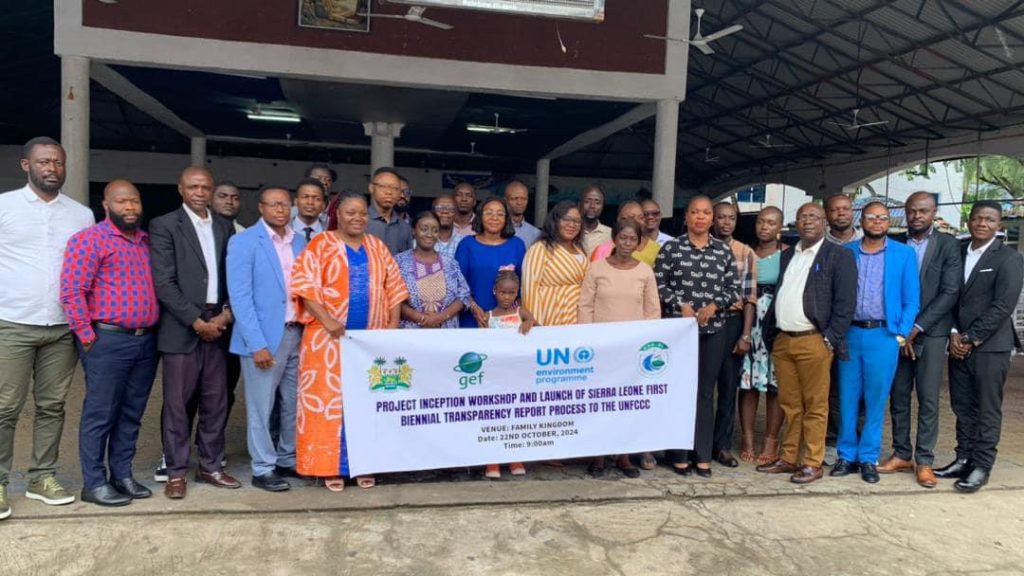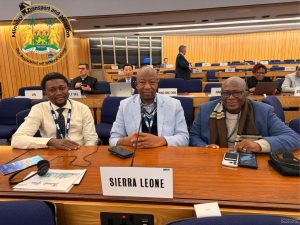SL Launches Process to Prepare First Biennial Transparency Report (BTR)

In alignment with the Paris Agreement, parties to the United Nations Framework Convention on Climate Change (UNFCCC) are required to prepare and submit Biennial Transparency Reports (BTRs) every two years. These reports are essential national documents that provide comprehensive data on various aspects of a country’s climate action, including a national greenhouse gas inventory.
The BTRs serve as a key tool for tracking progress on climate goals and ensuring transparency in climate efforts. They include information on the country’s National Inventory Reports (NIR), progress toward achieving Nationally Determined Contributions (NDCs), the implementation of climate policies and measures, climate change impacts, adaptation efforts, and financial and technological support received. Additionally, the BTRs address capacity-building needs and identify areas for further improvement.
With support from the Global Environment Facility (GEF), Sierra Leone’s Environmental Protection Agency (EPA) and its supervising ministry officially launched the process to prepare the country’s first BTR, which is due for submission in December 2024.
In his keynote address, Dr. Abu-Bakar S. Massaquoi, the Executive Chairman of the EPA, described the workshop as a critical opportunity for Sierra Leone to demonstrate its commitment to climate action and transparency. He emphasized the importance of ensuring that the report accurately reflects the country’s climate achievements over the past two years. “The BTR will serve as an important tool to showcase Sierra Leone’s progress on the international stage, in line with the Paris Agreement’s objectives,” he stated.
Dr. Massaquoi also stressed that the BTR must align with key international commitments under the Paris Agreement, including transparency, climate finance, capacity-building, and the global stocktake. He urged participants to actively contribute to the development of the report, as input from diverse sectors is crucial for capturing the full scope of Sierra Leone’s climate efforts and achievements.
The Deputy Minister of Environment and Climate Change, Madam Mimi Sobba-Stephens, highlighted the significant role the BTR plays in fulfilling both national and international climate obligations. These obligations are enshrined in the UNFCCC, the Paris Agreement, and Sierra Leone’s own national development goals. Madam Sobba-Stephens emphasized that the BTR would provide transparent, reliable data that not only enhances the country’s climate action but also helps build trust and foster international cooperation.
She noted that the BTR would replace Sierra Leone’s previous Biennial Update Reports (BURs) and would include a detailed national inventory, marking a significant step forward in the country’s climate reporting and transparency efforts.
Madam Sobba-Stephens also expressed her gratitude to the Global Environment Facility (GEF), the United Nations Environment Programme (UNEP), and all the stakeholders involved in the process. She acknowledged their support in helping Sierra Leone fulfill its climate commitments, ultimately reinforcing the country’s dedication to building a greener, more resilient future.
“This BTR is not only a report for Sierra Leone but a reflection of our collective efforts toward global climate action. By ensuring transparency and accountability, we are positioning Sierra Leone as a responsible and engaged partner in the fight against climate change,” she concluded.





